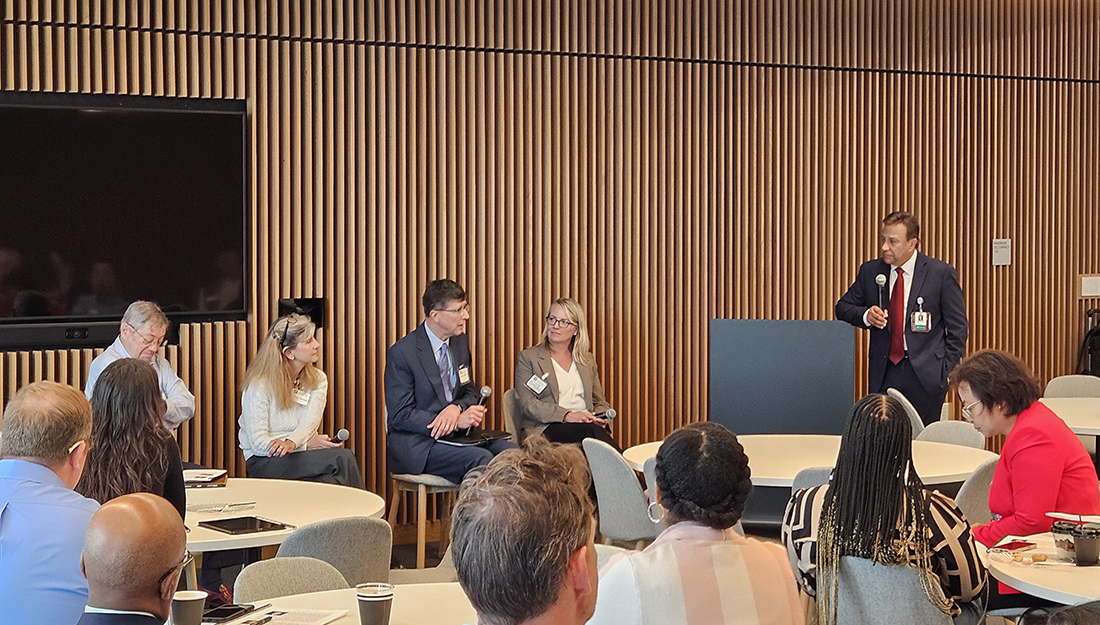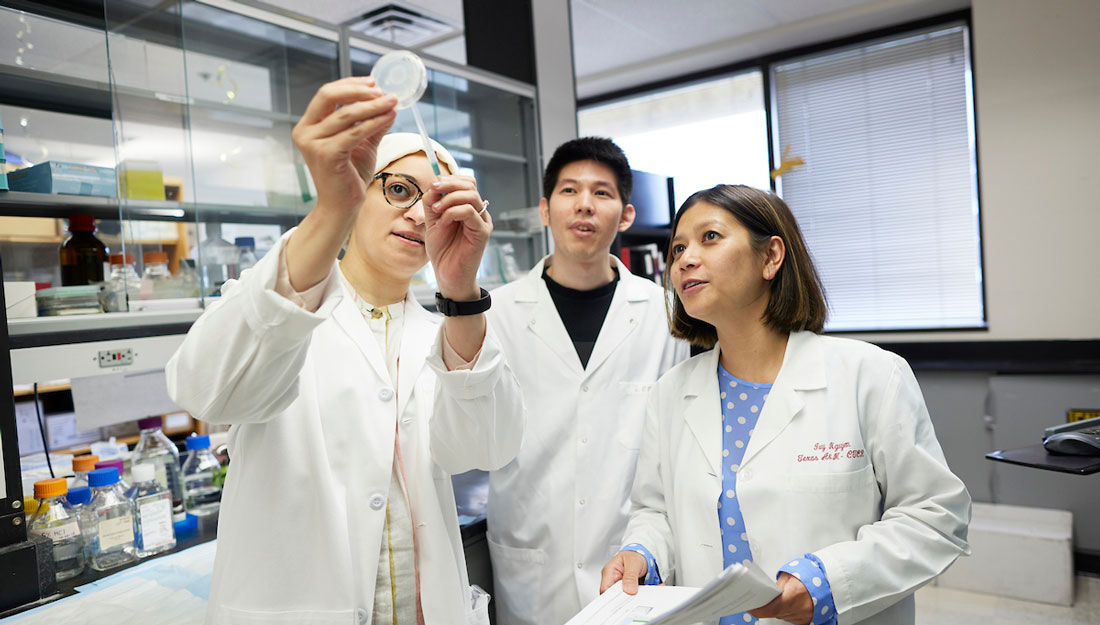- Dee Dee Grays
- Administrative Updates, Biosciences & Technology, Show on VR homepage
TAMEST names Yun Nancy Huang for its inaugural Mary Beth Maddox Award and Lectureship
The award recognizes women scientists in Texas bringing new ideas and innovations to the fight against cancer

TAMEST (The Academy of Medicine, Engineering, and Science of Texas) announced Yun Nancy Huang, PhD, associate professor at the Texas A&M Health Institute of Biosciences and Technology, as the recipient of the inaugural Mary Beth Maddox Award and Lectureship.
The Mary Beth Maddox Award and Lectureship recognizes women scientists in Texas bringing new ideas and innovations to the fight against cancer. It was established in honor of Mary Beth Maddox, former executive director of TAMEST, who passed away in 2018 after a valiant battle with pancreatic cancer.
Huang was chosen for contributing prominently to the field of cancer epigenetics, the study of heritable changes to molecular processes affecting the body that influence the flow of information between the DNA of cancer cells and their gene expression patterns. By pioneering cutting-edge technologies, Huang discovered how to probe DNA hydroxymethylation in cell-free DNA to improve cancer diagnosis and prognosis.
“I was so pleased to nominate Dr. Yun Nancy Huang for the inaugural Mary Beth Maddox Award and Lectureship because she is an outstanding scientist with a remarkable record of innovative scientific achievements in the field of cancer research and has an incredibly bright future,” said nominator and TAMEST member Kenneth S. Ramos, MD, PhD (NAM), associate vice president for research at Texas A&M Health and executive director of the Texas A&M Institute of Biosciences and Technology. “Dr. Huang’s overall research interests are centered on elucidating the role of epigenetic control systems in cancer and in developing effective strategies for cancer treatment and diagnosis. The results have been truly groundbreaking.”
Dr. Huang’s research focuses on epigenetics, or the “software” that runs the human genome, which is one of the most promising targets for disease prevention. During her postdoctoral training, Huang significantly contributed to the initial characterization of TET enzymes, a new type of epigenetic “code writer” that could produce a previously-unrecognized “sixth” base, 5-hydroxymethylcytosine (5hmC), in the human genome. She was among the first to illuminate the biological significance and clinical values of 5hmC in cancer and development. Her work has allowed researchers to better understand the different “programming languages” cancer cells use to reprogram their epigenome.
Her major contributions to the field of cancer research include probing reliable epigenetic signatures in liquid biopsy to aid the disease monitoring and treatment response; epigenetic regulation in tumorigenesis; and the development of novel chemical biology tools for epigenetic regulation in anti-tumor immunotherapy.
“TAMEST is proud to present Dr. Huang with the first-ever Mary Beth Maddox Award and Lectureship for her inventive work, which advanced relevant fields by providing new concepts, unraveling new mechanisms, and developing new technologies that can be used to address questions regarding tumorigenesis, anti-tumor therapy and biomarker development,” said TAMEST Board President David E. Daniel, PhD (NAE). “Dr. Huang is an exceptional scientist and the ideal candidate for the Mary Beth Maddox Award and Lectureship. We are proud to have her as our first ever recipient and look forward to the groundbreaking research she has yet to discover.”
TAMEST will officially present the award to Dr. Huang at the 2022 TAMEST Annual Conference: Forward Texas – Imperatives for Health at the Westin Riverwalk Hotel in San Antonio on June 20-22, 2022.
Dr. Huang will present her research at the conference to the greater Texas research community and receive a $5,000 honorarium in addition to the award. Dr. Huang will then promote her work and discoveries across the state through a series of lectureships at TAMEST member institutions.
Dr. Huang is the first recipient of this award. Learn more about the award and its history here.
Media contact: media@tamu.edu


